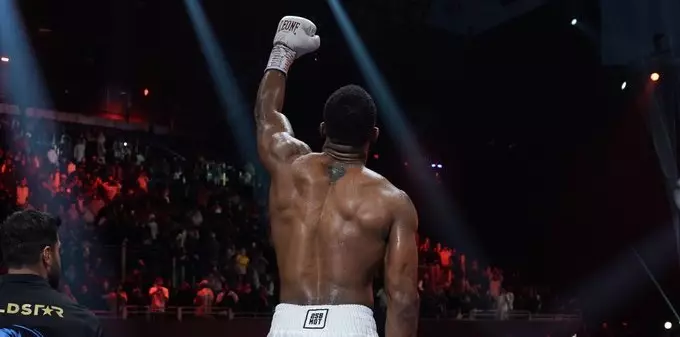Boxing is a double-edged sword: it offers glory, fame, and financial rewards, but it also carries the undeniable risk of severe physical harm. For professional boxers, the toll taken on their bodies is profound, and recognizing the moment to step away is crucial. This is particularly true for celebrated fighters like Anthony Joshua, who find it challenging to call time on their careers even after experiencing significant defeats. As we reflect on Joshua’s recent setback against Daniel Dubois, it’s imperative to examine the ramifications on his health and legacy.
Every boxer enters the ring aware of the potential consequences of their profession. However, not every combatant acknowledges the moment to exit gracefully. The allure of glory often clouds judgment, leading fighters to linger in the sport beyond their prime. This phenomenon isn’t unusual; many notable boxers have continued to fight long after their abilities have diminished, resulting in catastrophic outcomes both mentally and physically. Anthony Joshua finds himself at a crossroads, and the lessons learned from others in the sport should serve as a cautionary tale for him as well.
Anthony Joshua’s career began with tremendous promise, capturing the heavyweight title and achieving widespread acclaim. Yet, it has been marred by defeats against formidable opponents like Daniel Dubois and Andy Ruiz. These losses highlight a crucial point: although boxing is inherently dangerous, the quality of opponents can amplify the risks. Both Dubois and Ruiz represent significant challenges in the ring, capable of inflicting serious damage. The crucial question now looms: how much damage is too much?
Joshua’s previous battle against Wladimir Klitschko is noteworthy—while he emerged victorious, he did so after sustaining a barrage of punches that could have ended his career prematurely. Each fight he has faced has taken a toll, and now, with the accumulation of injuries and setbacks, one must consider the long-term implications on his health. No fighter is invincible, and the matter of longevity in boxing translates to recognizing one’s limits.
It is tempting for fighters to cling to the idea of redemption, believing they can overcome previous failures and restore their former glory. Joshua’s narrative might well be influenced by the desire to demonstrate to his fanbase that he hasn’t lost his competitive edge. Such reasoning, however, can lead to a dangerous mindset. The reality is that, with each subsequent fight, the risk of long-term damage increases. Despite the lack of immediate repercussions following a fight, the truth is that the effects of multiple concussions and injuries can manifest later in life.
The notion that talking about retirement equates to weakness can trap athletes in a cycle of denial. It can become a fear of fading into obscurity, overshadowing their achievements. However, in grappling with the idea of retirement, Joshua must weigh the potential for future cognitive decline, physical deterioration, and the overall impact on his life post-boxing.
While Joshua may still have a fight or two left in him, a wise assessment would allow the fighter to retire before the irreversible damage manifests. It’s essential to prioritize long-term health over fleeting moments of glory. Should he choose to step back from the ring, the world would remember his contributions to the sport through a legacy of victory rather than a list of subsequent losses.
Ultimately, the question isn’t whether Joshua can continue fighting but rather if he should. The answer lies in a careful evaluation of both his physical condition and his mental resolve. It’s essential for him to follow through with a thoughtful decision for retirement—one that aligns with proper self-care and respect for the sport that has defined his career. In doing so, Joshua can take inspiration from past champions who have transitioned successfully into retirement, paving the way for a fulfilling life beyond boxing. Let’s hope Joshua makes a decision that prioritizes both his well-being and his legacy in the sport.


Leave a Reply